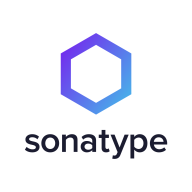

Find out what your peers are saying about Black Duck, Snyk, Veracode and others in Software Composition Analysis (SCA).


Debricked Security offers a comprehensive approach to open-source vulnerability management, focusing on enhancing software security and compliance for tech-savvy organizations seeking robust security solutions.
Debricked Security provides a specialized platform that assists users in managing open-source vulnerabilities effectively. By integrating seamlessly into existing workflows, it allows developers to assess security risks without disrupting productivity. Valuable for teams focused on maintaining high security standards, it facilitates proactive threat identification and compliance tracking. While it offers extensive features, some users suggest room for improvement in reporting capabilities for more in-depth analysis.
What are the most important features of Debricked Security?Debricked Security finds application in industries with a heightened focus on software integrity, like finance and healthcare. These industries benefit from its ability to integrate smoothly into existing ecosystems, providing essential security insights without compromising operational efficiency. Its focus on open-source library management helps companies mitigate risks associated with third-party software usage.
Sonatype Lifecycle is an open-source security and dependency management software that uses only one tool to automatically find open-source vulnerabilities at every stage of the System Development Life Cycle (SDLC). Users can now minimize security vulnerabilities, permitting organizations to enhance development workflow. Sonatype Lifecycle gives the user complete control over their software supply chain, allowing them to regain wasted time fighting risks in the SDLC. In addition, this software unifies the ability to define rules, actions, and policies that work best for your organizations and teams.
Sonatype Lifecycle allows users to help their teams discover threats before an attack has the chance to take place by examining a database of known vulnerabilities. With continuous monitoring at every stage of the development life cycle, Sonatype Lifecycle enables teams to build secure software. The solution allows users to utilize a complete automated solution within their existing workflows. Once a potential threat is identified, the solution’s policies will automatically rectify it.
Benefits of Open-source Security Monitoring
As cybersecurity attacks are on the rise, organizations are at constant risk for data breaches. Managing your software supply chain gets trickier as your organization grows, leaving many vulnerabilities exposed. With easily accessible source code that can be modified and shared freely, open-source monitoring gives users complete transparency. A community of professionals can inspect open-source code to ensure fewer bugs, and any open-source dependency vulnerability will be detected and fixed rapidly. Users can use open-source security monitoring to avoid attacks through automatic detection of potential threats and rectification immediately and automatically.
Reviews from Real Users
Sonatype Lifecycle software receives high praise from users for many reasons. Among them are the abilities to identify and rectify vulnerabilities at every stage of the SDLC, help with open-source governance, and minimize risk.
Michael E., senior enterprise architect at MIB Group, says "Some of the more profound features include the REST APIs. We tend to make use of those a lot. They also have a plugin for our CI/CD.”
R.S., senior architect at a insurance company, notes “Specifically features that have been good include:
• the email notifications
• the API, which has been good to work with for reporting, because we have some downstream reporting requirements
• that it's been really user-friendly to work with.”
"Its engine itself is most valuable in terms of the way it calculates and decides whether a security vulnerability exists or not. That's the most important thing. Its security is also pretty good, and its listing about the severities is also good," says Subham S., engineering tools and platform manager at BT - British Telecom.
We monitor all Software Composition Analysis (SCA) reviews to prevent fraudulent reviews and keep review quality high. We do not post reviews by company employees or direct competitors. We validate each review for authenticity via cross-reference with LinkedIn, and personal follow-up with the reviewer when necessary.